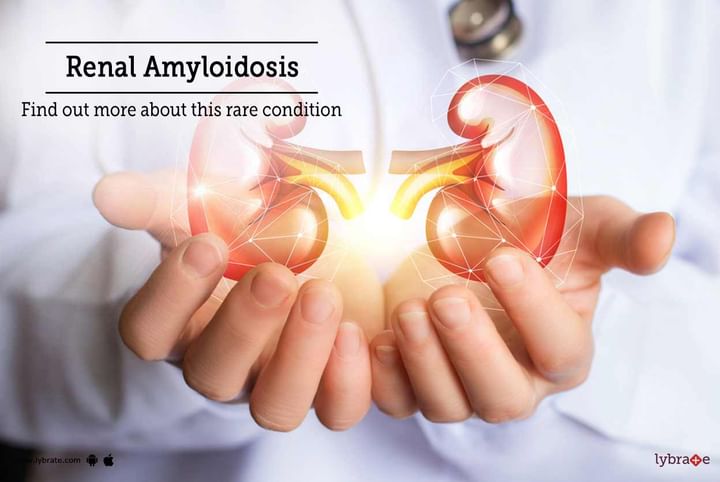Renal Amyloidosis: Find out more about this rare condition
Amyloidosis is a rare disease that occurs due to the build-up of amyloid proteins in your organs. The disease can affect any of your organs, including the heart, spleen, kidneys, liver, digestive tract, and nervous system. Renal amyloidosis, as the name suggests, affects your kidneys.
Risk Factors
The risk factors of Renal amyloidosis are as follows –
- Age – between age 60 and 70
- Sex – about 70% of all men are affected by renal amyloidosis
- Family history
- Underlying chronic infections/ inflammatory conditions
- Kidney dialysis
Two types of amyloidosis act on your kidneys. They are –
- Primary renal amyloidosis – Deposits of amyloidosis damage the kidneys and makes it difficult for the organs to break down proteins and filter wastes. When the kidneys are excessively damaged, they may not be able to carry out normal functioning, eventually leading to renal failure.
- Dialysis-related amyloidosis – People suffering from renal failure or undergoing long-term dialysis can develop this condition. This occurs when a protein named beta-2 microglobulin accumulates in blood since dialysis cannot remove it completely.
Dialysis-related amyloidosis occurs as a complication of renal failure because neither peritoneal dialysis nor haemodialysis filters beta- 2 microglobulins from the blood effectively. As a result, high amounts of the protein remains in the bloodstream.
Signs and Symptoms of Renal Amyloidosis to watch out for
If you have renal amyloidosis, you are likely to notice the following signs and symptoms –
- Albuminuria – high traces of the albumin protein in the urine
- Hyperlipidemia – excess amounts of fats and cholesterol in the blood
- Swelling in the ankles, feet, and less often on hands and face
- Persistent fatigue
- Low blood pressure
- Shortness of breath
- Tingling, numbness, or a burning sensation in the feet or hands
- Weight loss
- Fluid build-up, pain and stiffness in the joints
- Bone cysts
Is there a cure?
There is no cure for renal amyloidosis. However, medications and healthy lifestyle changes can help you to manage the symptoms and prevent excess production of the amyloidosis protein.
If you come across the above symptoms, you should consult a doctor immediately. Your healthcare provider may suggest eating reduced or moderate amounts of protein so that they do not put pressure on your kidneys. Learning all about this rare condition can help a great deal in treating the disease.


+1.svg)
